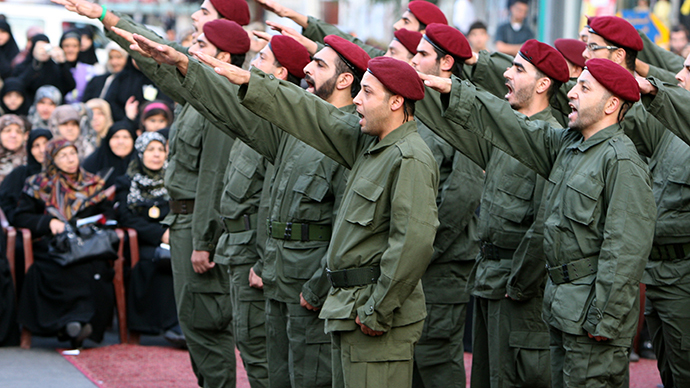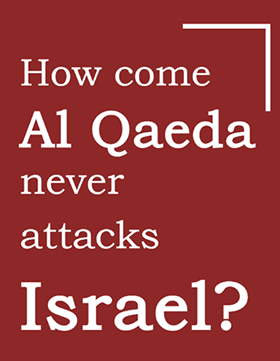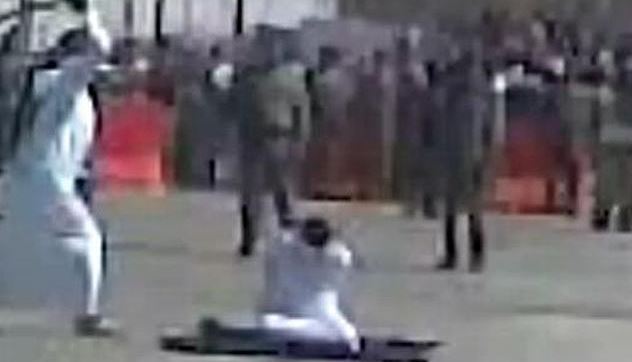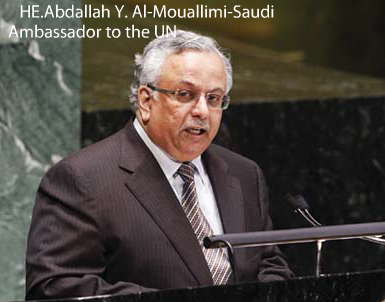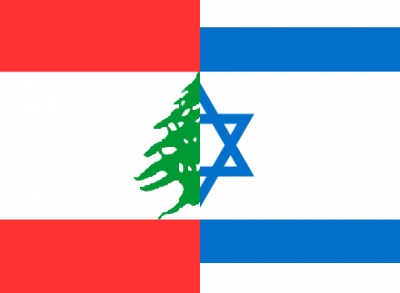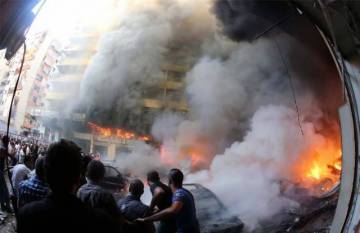There has been an ongoing information war being fought for hearts
and minds inside and outside of the Middle East. The war has mostly
been tied to Syria. As the US and its allies begin to focus their
attention on Hezbollah in Lebanon, the media war now includes the events
in Lebanon. This, however, has not stopped the media attempts to depict
the fighting in Syria in sectarian terms as a regional war between
Shias and Sunnis or to demonize Syria’s allies…
In regards to Syria, the Israeli media, the Saudi media, and
Lebanon’s Hariri-owned media — which belongs to Hezbollah’s
US/Saudi-supported rivals — have all carried the same August 2013 AFP
story or some derivative of it that deceitfully reports the Iran and
Hezbollah are now running Syria. The Jerusalem Post, Arutz Sheva, the
Daily Star, Ya Libnan, Al-Arabiya, the Saudi Gazette, Hürriyet,
Naharnet, France 24, Fox News, and the Dubai-based Gulf News are
examples of the type of media that carried this so-called news. Here is
an extract of the text which sums up the entire image that the article
is trying to engrain into the minds of its readers: «Assad ‘no longer
runs Syria. The real rulers of Syria are the Iranian (elite)
Revolutionary Guard… with the participation of Hezbollah fighters,’
Jarba said». The entire report is built around a quote by Ahmad
Al-Jarba, the leader of the foreign-controlled and funded Syrian
National Coalition.
How the Mainstream Media Legitimizes Terrorism Against Lebanese Civilians
Next the same media outlets finessed the news about the terrorist
bombs planted in Beirut’s southern suburb of Dahiyeh. The August 15,
2013 terrorist bombings in the neighbourhood of Al-Rouweiss (Al-Rweiss)
were downplayed and, in a manner of speaking, legitimized by the media
through their selective use of language. The attack on Al-Rouweiss came
about a month after the July 9, 2013 terrorist attack on the
neighbourhood of Bir Al-Abed. Both are densely populated neighbourhoods
in Dahiyeh. The Institute for Public Accuracy (IPA) in the United States
took quick notice of the biased media framing. IPA asked the following,
on August 16, 2013, through the title of a report: «Why Isn’t Beirut
Bombing Called ‘Terrorist’? What’s Behind It?»
The Lebanese newspaper Al-Akbar is worth looking at to get a grasp of
the biased media reporting that has been used to reframe the events as
legitimate. It commented thus on August 17, 2013: «The Western media
have double standards when it comes to ‘terrorism.’ Within hours after
two bombs were detonated at the Boston Marathon last April, many in the
media had christened it a ‘terrorist attack.’ Meanwhile, the August 15
bombing in Rouweiss that killed at least two dozen is a ‘blast’ that
occurred in a ‘Hezbollah stronghold.’» As Al-Akhbar observes, the word
«Hezbollah stronghold» plays a prominent role in giving the impression
that the civilian neighbourhours bombed in Beirut were armed barracks.
Al-Akhbar even nicely sums up some of the biased titles used to describe
the terrorist attacks:
Wall Street Journal: «Car Bomb Blasts Hezbollah Stronghold in Lebanon»
BBC: «Deadly Lebanon Blast in Beirut Stronghold of Hezbollah»
LA Times: «Massive Explosion in Beirut Rocks Hezbollah Stronghold»
Washington Post: «Bomb Explodes in Hezbollah Stronghold in Beirut, Injuring Dozens»
Reuters: «Over 50 Hurt as Car Bomb Hits Hezbollah Beirut Stronghold»
Associated Press: «Car Bomb Rocks Hezbollah Stronghold in Lebanon»
France24: «Car Bomb Rocks Hezbollah Stronghold in Beirut»
Mixed with the other narratives that the same media outlets are
painting, the terrorist attacks are being tacitly portrayed as some type
of legitimate retaliation. Readers are basically led to think that the
terrorist attacks in Dahiyeh were a military act against some type of
Hezbollah base.
How the Mainstream Media Lies and Deliberately Places the Blame on Sunni Muslims
Sheikh Hassan Nasrallah, the secretary-general of Hezbollah,
responded to the terrorist attack on Al-Rouweiss by categorically saying
that the attacks were not the work of Sunni Muslims. He gave a speech
saying that there were going to be those groups and individuals that
would try to blame the terrorist attacks in Beirut on the Sunnis and
said that these groups and individuals should be outright dismissed. In
fact, he said that anyone that used this divisional logic was an
«Israeli» and a partner in the goal of creating massacres. He made it
clear that the individuals who planted the bombs did not represent the
Sunni Muslims or the Arabs or the Syrians or the Palestinians. In a
message to the US and its allies, he also said clearly that Hezbollah
was aware that the intelligence services of the US and its allies had
infiltrated various terrorist groups and manipulate them as tools.
Despite Nasrallah’s clear words, his words were totally changed by
the same media outlets that were legitimizing the terrorist attacks in
Beirut. The Israeli media, the state-run British Broadcasting
Corporation (BBC), Al Jazeera, and Al Arabiya would blatantly fabricate
the news and claim that Nasrallah «blamed the Sunnis» or try to
manipulate readers into getting the impression that he did. The New York
Times would title an August 16, 2003 article on the terrorist attacks
as the following: «Hezbollah Makes Vow to Step Up Sunni Fight». It would
never even mentioning that Nasrallah went out of his way to say that
the people involved in the terrorist attacks were the tools of the US
and Israeli government and not really Sunni Muslims. Instead Ben Hubbard
would focus on sectarianism in Lebanon and write: «In short, Hezbollah
has more enemies than it used to have».
The BBC on the other hand would write a similar article on August 16
too. It would also use a grossly misleading title. The title would be
«Hezbollah blames Sunnis for bomb». After a large number of people
caught it, the BBC would change the title to «Beirut bomb: Hezbollah’s
Nasrallah blames Sunni radicals».
Exposing the Yellow Journalism at Work as a Tool of War
Aside from their direct or indirect links to these media outlets,
even the political actors involved show that the way the news is
reported is not circumvent of them. Saad Hariri, the leader of the
Future Party and a Saudi client, even responded to Hassan Nasrallah’s
speech by saying that he had no right to designate what groups are
terrorists. Hariri’s overlords in Saudi Arabia, on the other hand,
refused to even condemn the terrorist attacks. This again is tied to the
attempts to reframe the terrorist attacks in Beirut as a legitimate
military act.
This type of yellow journalism that relies on misleading headlines
that essentially say everything that the hollow articles carry and have
little or no newsworthy material is not politically neutral. It is a
weapon of war. All these articles are agitating for bloodletting in the
Middle East, specifically between Shias and Sunnis. This type of
journalism either directly or indirectly stokes the fires of
sectarianism in Lebanon and the Middle East with the intentions of
spreading sectarian animosity. This is why it deliberately ignores and
refuses to even acknowledge the main points of Nasrallah’s speech that
clearly pointed the finger at Israel and the US and said that the
terrorist attacks had nothing to do with Sunni Muslims.

